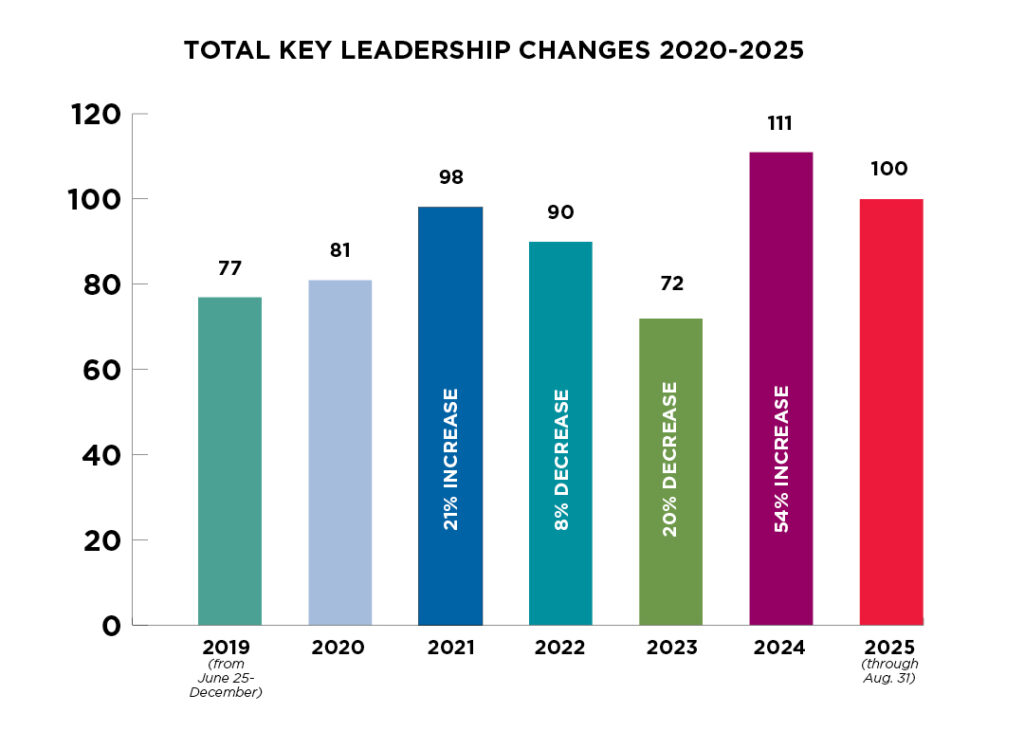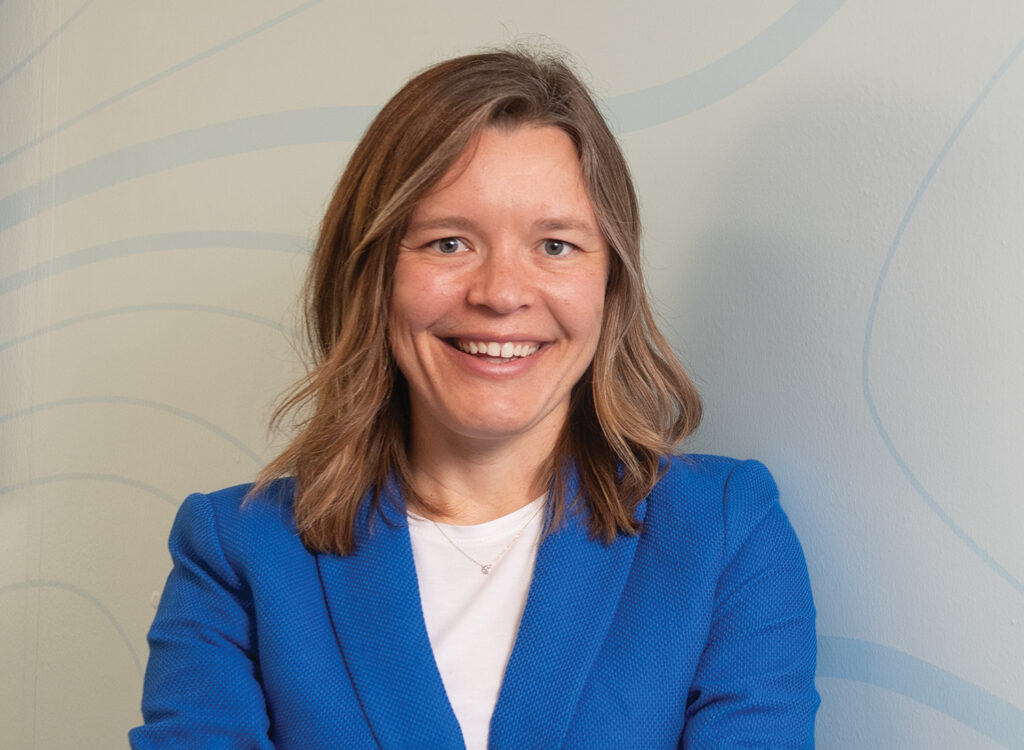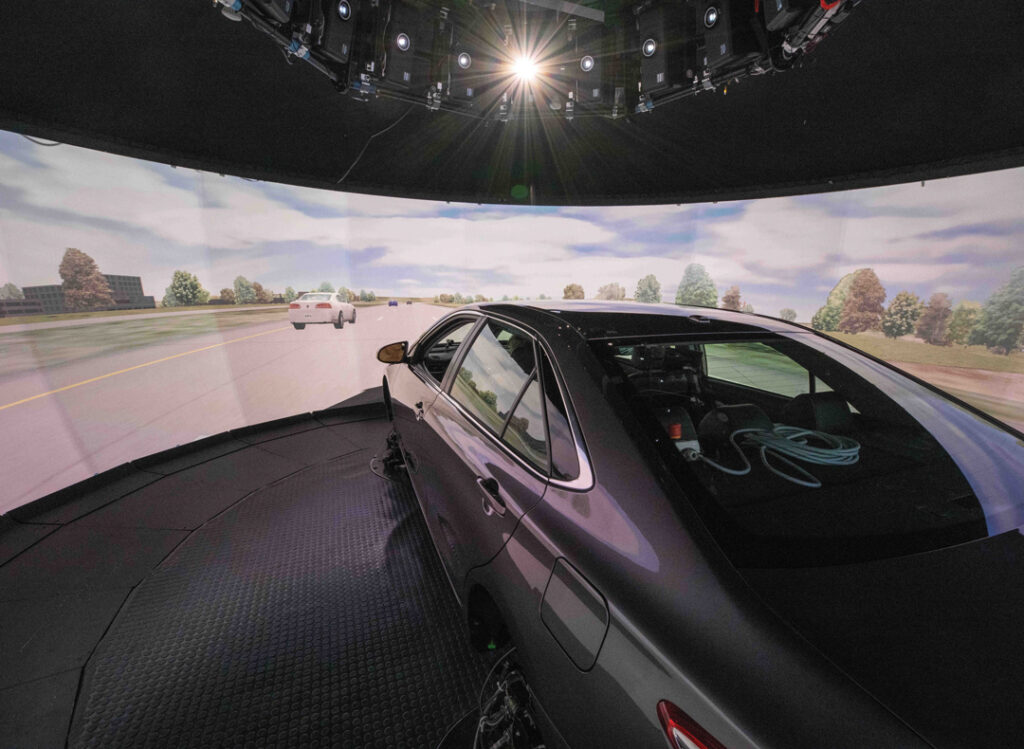Closer Look: Judi Eyles
Take a Closer Look at the new director of the Iowa State University Pappajohn Center for Entrepreneurship

KATE HAYDEN Jun 20, 2018 | 3:44 pm
5 min read time
1,261 wordsBusiness Record Insider, Innovation and Entrepreneurship Although just a year into her role as director of the Iowa State University Pappajohn Center for Entrepreneurship, Judi Eyles is not a newcomer to the center. Eyles, who graduated from ISU in 1993, was at the center’s 1996 founding as John and Mary Pappajohn announced an initial $1 million gift to support small businesses.
“From the beginning our Pappajohn Center was focused on academic programs, interdisciplinary entrepreneurship across campus. We established a minor in entrepreneurship, which still exists today, and now we have a major and a P.h.D, things like that,” Eyles said. “My role from being a Small Business Development [Center] counselor really transitioned into developing experiential learning programs for students, so they get exposed to it in the classroom.”
Before joining the SBDC as a graduate student in 1994, Eyles spent a few years in Texas and Maryland working in project management for two aerospace supplier companies. During graduate school, Eyles, who has her degree in marketing and psychology, started a cap and gown rental business for ISU students.
This summer, Eyles is working with 15 student startups in CYstarters, a 10-week summer accelerator. She continues to work with the four other Pappajohn centers at the University of Northern Iowa, Drake University, the University of Iowa and North Iowa Area Community College; the SBDC; and the Debbie and Jerry Ivy College of Business at ISU, which oversees the John Pappajohn Entrepreneurial Center.
How has the John Pappajohn Center changed as the entrepreneurial culture changes?
A lot of our programs, if you look at our website, are designed around giving students experience, and also community folks. We do internships and speakers, summer accelerators and learning communities, clubs, things like that … and our third item is to support businesses.
The other sort of thing we’re doing is to try to connect students across disciplines. A business student who’s got the idea for a new car, cellphone, whatever it is, can find the engineer who can help them build a 3D model. And then you connect with a graphic designer who can help them build a brochure. …
So what I’ve seen in 22 years since we started this center is the mission is still the same. The goal is still to expose people to entrepreneurship, provide experiences in entrepreneurship, and to grow businesses. Today, what’s kind of fun is there’s almost a restart of entrepreneurship at Iowa State. There’s our president who’s talking about entrepreneurship, we’ve got way more companies here than when we started, we’ve got Startup Factory, all of this under one roof. … Now there’s an awareness of what we do and what we’re trying to accomplish.
What does the ISU Pappajohn program uniquely offer that the other four programs don’t?
The five Pappajohn Centers, we collaborate a lot. We do a statewide student competition, we do a statewide grown-up competition, if you will, so we do that together, which is really nice. A lot of us have been with the center since the beginning, which is kind of fun.
Here at Iowa State, I think one of our strengths is our interdisciplinary focus. It’s truly campuswide. We have found some really great ways to really support technology coming out of the University Research Park. … The integration of the academic and the business community is really important. It makes it bigger and broader and more collaborative.
What do you predict will change for the center in the next five years?
Growth is a goal. … We have the next couple years, we’re going to be focusing a lot of interdisciplinary undergraduate education and entrepreneurship. We have a Student Innovation Center coming on board in 2020. There will be a strong presence of entrepreneurship as a part of that facility and programming, and hopefully more businesses. From the top of the funnel to the bottom, we are still trying to create more businesses at Iowa State and in Iowa. That will continue to be a goal.
There’s just a lot of momentum on campus right now with activity that I think we’re going to be even bigger and better in the next five years.
What kind of goals do you have for this year?
We just hired a new staff member … so that’s a step in the right direction.
Our goal is to really build visibility on campus, reach out for students we may not already be reaching to, and then the second goal is to continue to move people through this system … what I don’t like to hear is I’ll meet a student the second semester of their senior year, and they’re like, ‘Ah, I wish I knew about this earlier,’ and so you missed that opportunity to help engage them.
Ideally, we want to find the right students, the right entrepreneurs to create more companies, and find opportunities for students who are interested in entrepreneurship to engage with those companies and really just grow the numbers. The College of Business started a major in entrepreneurship last fall. I think we have 60 majors already, and our goal was 50 in the first year. That’s really cool.
You’ve been here since the center’s start. Why focus your career on entrepreneurship?
It’s great. I also have a student consulting program here, so I have 40 students that do consulting projects with companies. Sometimes I feel like my best job is, I’m a cheerleader for people. Honestly, it’s the best job in the world because I’m working with successful businesspeople, but connecting those businesspeople to dynamic, driven students. Being in the intersection of that is really cool, it’s rewarding, it’s fun.
You follow these students, and they don’t all become successful companies but they become successful businesspeople somewhere. … I get up every day and I’m excited about what I do. It’s something different every day. It’s a different type of business, it’s a different student, it’s a different problem to solve.
The way we teach entrepreneurship is completely different in 20 years. I was hired originally to write business plans for research park companies. I was writing 40- to 60-page business plans for companies. Now, there’s no time for that, you go find and talk to potential customers, do a one-page business model canvas, give us a two-page summary of your business, and let’s start talking and making connections. … The philosophy of how you teach entrepreneurship has completely changed. It’s a lot more fast-paced, it’s way more interactive with real people, it completely exposes the folks we’re working with to people who have both succeeded and failed in business, who can provide great input and value to whatever they’re developing. It’s just fun.
What’s the best advice you’ve gotten since taking over as director?
I don’t know that anybody’s given me advice, but I have watched other people be good leaders. I think more than that, I’ve been inspired by folks that are good leaders. People are really, really important, and people are more capable than they’re sometimes given the opportunity to perform.
If you give somebody an opportunity and let them own it, they can be amazing. … Anything you do can be visible by anybody. Go do good stuff, be ethical about it, and help others.
What have you been watching, reading or listening to?
I just gave a student two books yesterday, “All in a Startup,” Diana Kander, and “Business Model Generation,” Steve Blank. They’re very simple ways to help a student understand business. … They’re good ones to pass on to students because they can grasp that.









